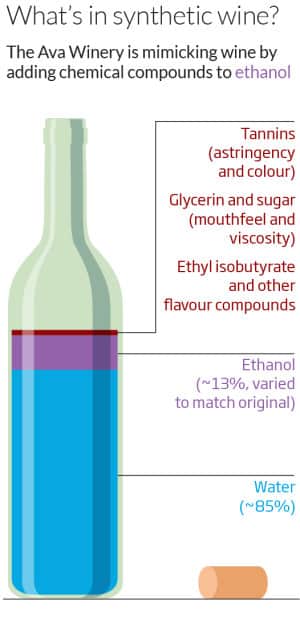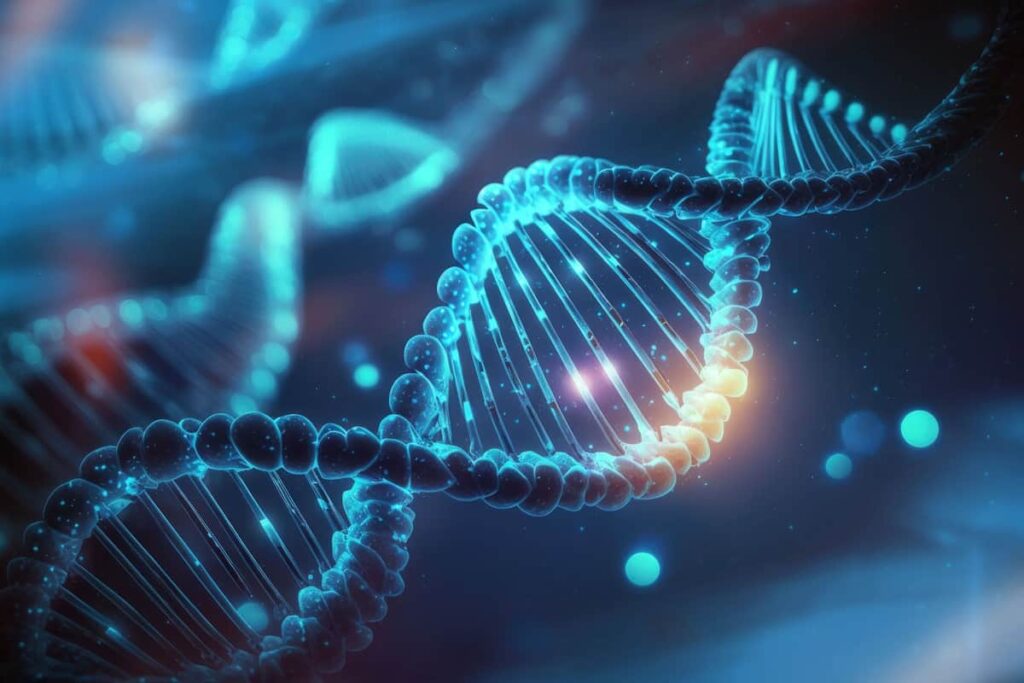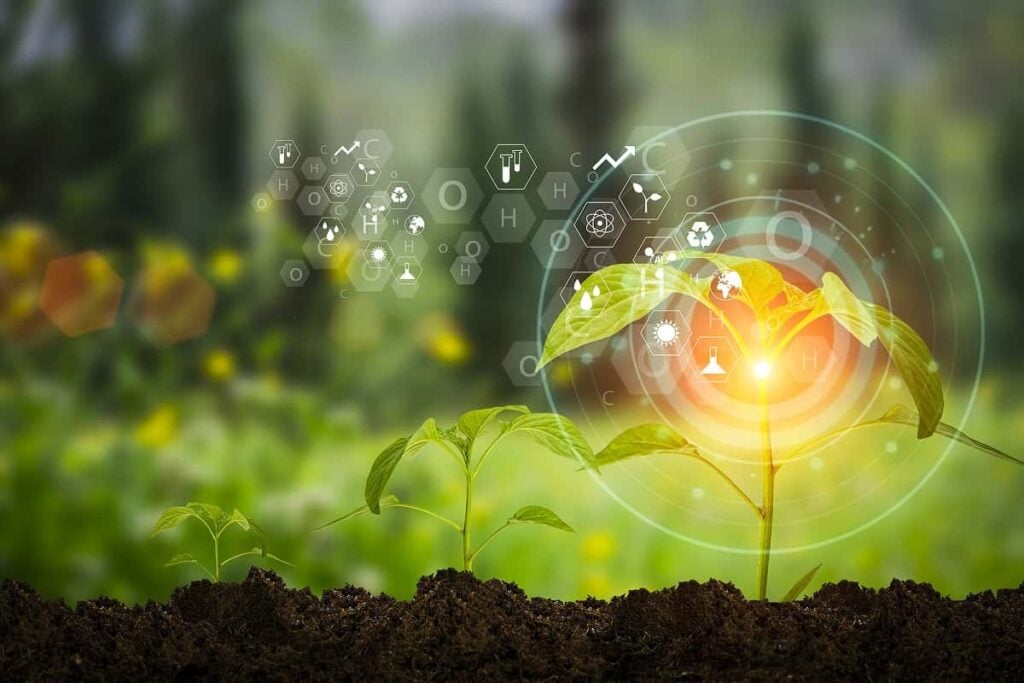Ava Winery Turns Water into Synthetic Wine
Table of contents

Nanotechnology is the science of examining the very small, and we recently talked about how we need to redefine the term nanotechnology in today’s day and age. When we have robot factories building nanobots on demand, the sky’s the limit. In a previous article, we talked about a company that’s growing synthetic steak called Modern Meadow. Now you may have some synthetic wine to go with that synthetic steak. The next time that you’re in a fancy restaurant and thinking about dropping some hard-earned dollars on an expensive glass of wine, consider that in a few months time, you could have that same glass of wine at a fraction of the price. There’s a new type of futuristic “winery” in town that’s making sophisticated flavors available to the masses by turning water into expensive wine. Literally.
About Ava Winery
Founded in 2015, Ava Winery has raised $2.7 million in funding (including institutions with experience in the wine industry) in order to set their sights on chemically cloning popular wines without using grapes, yeast, or a fermentation process. The startup hopes to make their wines available to the public at a fraction of the price. Imagine a world where every single glass of expensive wine could be replicated for price points of as little as $5. Only a small fraction of people will be able to tell the difference.
Traditionally, making wine has been an expensive and time-consuming process:

In early April, Ava Winery founder Mardonn Chua detailed his attempts to recreate popular wines in a post on Medium. Chua started by combining ethanol with flavorful compounds like ethyl hexanoate to mimic fruity flavors and give the liquid the appropriate body. These experiments were mildly successful, but showed how difficult it is to achieve the taste, texture, and smell of traditionally fermented wines. These early public attempts to re-create popular wines from scratch eventually served as test runs for the processes that they would use when they launched Ava Winery in August of last year.
How Does Their Process Work?
Ava Winery’s team starts by analyzing the molecular composition of wines that they wish to clone, and reconstructs them with an identical chemical profile to produce a comparable taste and texture. They make the wine from groups of bonded atoms, re-building wines from the ground up molecularly. Amazingly, the process includes no usage of grapes, yeast, or fermentation. The Company is literally turning water into wine using what they have described as just one big chemistry problem.
According to Ava, the flavor and aroma of wine are produced by compounds that make up less than 0.1 percent of the total liquid. These compounds come from the grapes, grape skins, and microbes that are responsible for fermenting the wine. Not all compounds produced during these processes have a large effect on the taste, smell, or texture of the wine. Identifying the compounds that do has been a major hurdle for the Ava Winery team.
While their synthetic wines have the Company and wine lovers excited at the prospect of obtaining prestigious vintage wines at a fraction of the price, some experts have expressed doubt that luxury wines could truly be re-created in a lab with some experts simply saying that the whole thing is “just nonsense”.
The team at Ava Winery is the first to admit that constructing the chemical makeup of popular wines from the ground up is no easy task. In the past, Lee has spoken on what a big challenge it is to figure out the concentrations of each different molecule. A single bottle of wine can have as many as 200 different compounds that work both with, and against each other to create a unique taste, feel, and look.

What Wines Will They Be Cloning?
Right now, Ava Winery has their sights set on three different wine clones for their first product release:
- Moscato d’Asti
- Dom Perignon
- Pinot noir
The company hopes to refine their processes to a point where they would require just a single glass of a given wine to identify its chemical makeup and begin working on their lab-created clone.
What does the future hold for Ava Winery?
The team at Ava Winery has set their sights much higher than just cloning high-dollar wines. They plan to offer a wide array of different wine profiles, cloning wines from all taste and price ranges. They also see Ava Winery as a first step toward securing a foothold in the future of synthetic foods, including other luxury goods like chocolate and coffee.
“At a very high level, the way future generations will make food is through synthetics,” founder Alec Lee said in a TechCrunch article published this summer. “It’s just not sustainable the other way around. Wine is a very unique opportunity for us to legitimize synthetic foods because we can very quickly get to market. A rising tide lifts all boats and wine is a great place for us to start.”
Potential Roadblocks and Challenges
Although the Ava Winery founders speak optimistically about a quick road to market for their products, there are a number of hurdles that must be overcome before they can secure their first sale.
First, the startup must overcome regulatory hurdles. Will the company be allowed to label their products as wine? On a chemical level, their wines are no different from the wines that are on store shelves, but the regulatory wording may require them to label their products differently because their production process doesn’t use grapes, yeast, or fermentation. The team is currently working through the licensing process, but anticipates a waiting game until they receive final approval. They also must overcome public perception in the wine community as well.
Second, it has to taste like expensive wine. An article by New Scientist in May of this year stated in a taste test that “One of our co-workers described it as the smell of those inflatable sharks you take to the pool“. Since then, Ava Winery claims that they are now leaps and bounds ahead of what they produced in May and that now 90% of tasters can’t tell the difference in a blind taste test.
Conclusion
The team is also currently weighing their options before going to market. They have considered a direct-to-consumer approach, but have also been in talks with large distributors and retailers in the wine and alcohol industries that could expand the reach of their product.
Sign up to our newsletter to get more of our great research delivered straight to your inbox!
Nanalyze Weekly includes useful insights written by our team of underpaid MBAs, research on new disruptive technology stocks flying under the radar, and summaries of our recent research. Always 100% free.















